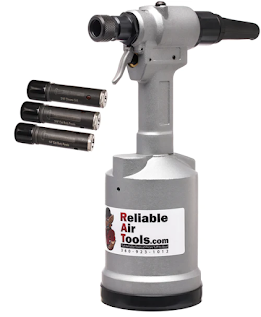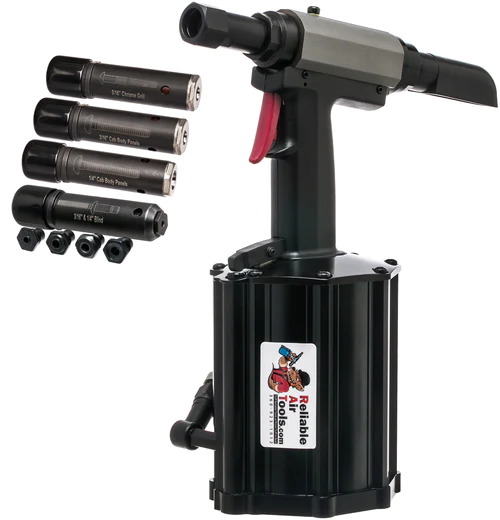Big Blunders You Should Avoid While Buying Huck Rivet Gun in 2024!
Having the appropriate equipment can be crucial in the rapidly evolving fields of manufacturing and construction. A Huck Rivet Gun is revolutionary when it comes to riveting operations. Let's examine the essential factors and dangers to avoid in 2024 when purchasing a Huck Rivet Gun.
Huck rivet guns, particularly the pneumatic variants, are
designed to offer unparalleled strength and efficiency, setting them apart from
traditional rivet guns. Pneumatic huck guns are ideal for labor-intensive jobs
requiring precision and force. Huck Rivet Gun is a perfect option for longevity
and excellent performance.
5 Mistakes to Avoid in 2024 When Choosing a Huck Rivet Gun
1. Ignoring Power Requirements: One of the biggest blunders is
overlooking your projects' power needs. Ensure the Huck Rivet Gun
you choose aligns with the power output necessary for your specific
applications.
2. Compatibility Check: Don't assume all rivet guns are
universal. Make sure the gun you choose can accommodate the sizes and kinds of
rivets you plan to use.
3. Ergonomics Matter: If you neglect the gun's
ergonomics, longer use may result in weariness and discomfort. Consider
the weight and grip design to ensure a comfortable and efficient riveting
experience.
4. Neglect in Maintenance: Keeping your rivet gun in good
condition is essential. Select a tool that is easier to clean and maintain to
ensure that it stays in proper shape in the future.
5. Warranty Awareness: It can be expensive to overlook
checking the warranty and post-purchase assistance.
Quick Steps to Use a Huck Pneumatic Rivet Gun for Your Peterbilt
Investing in a Huck Pneumatic Rivet Gun
can revolutionize your riveting tasks, especially for your Peterbilt projects.
Here's a quick guide to using the gun effectively:
1. Prepare Your Workspace: Clear your work area and ensure
adequate ventilation before starting your riveting task.
2. Load the Rivet: Securely insert the appropriate rivet
into the gun's nose assembly, ensuring it is properly seated.
3. Align and Position: Position the gun accurately on the
workpiece where you intend to place the rivet.
4. Trigger Action: Firmly press the trigger to activate
the gun, precisely driving the rivet into place.
5. Inspect and Repeat: Verify the secure placement of the
rivet and repeat the process for additional riveting needs.




Comments
Post a Comment